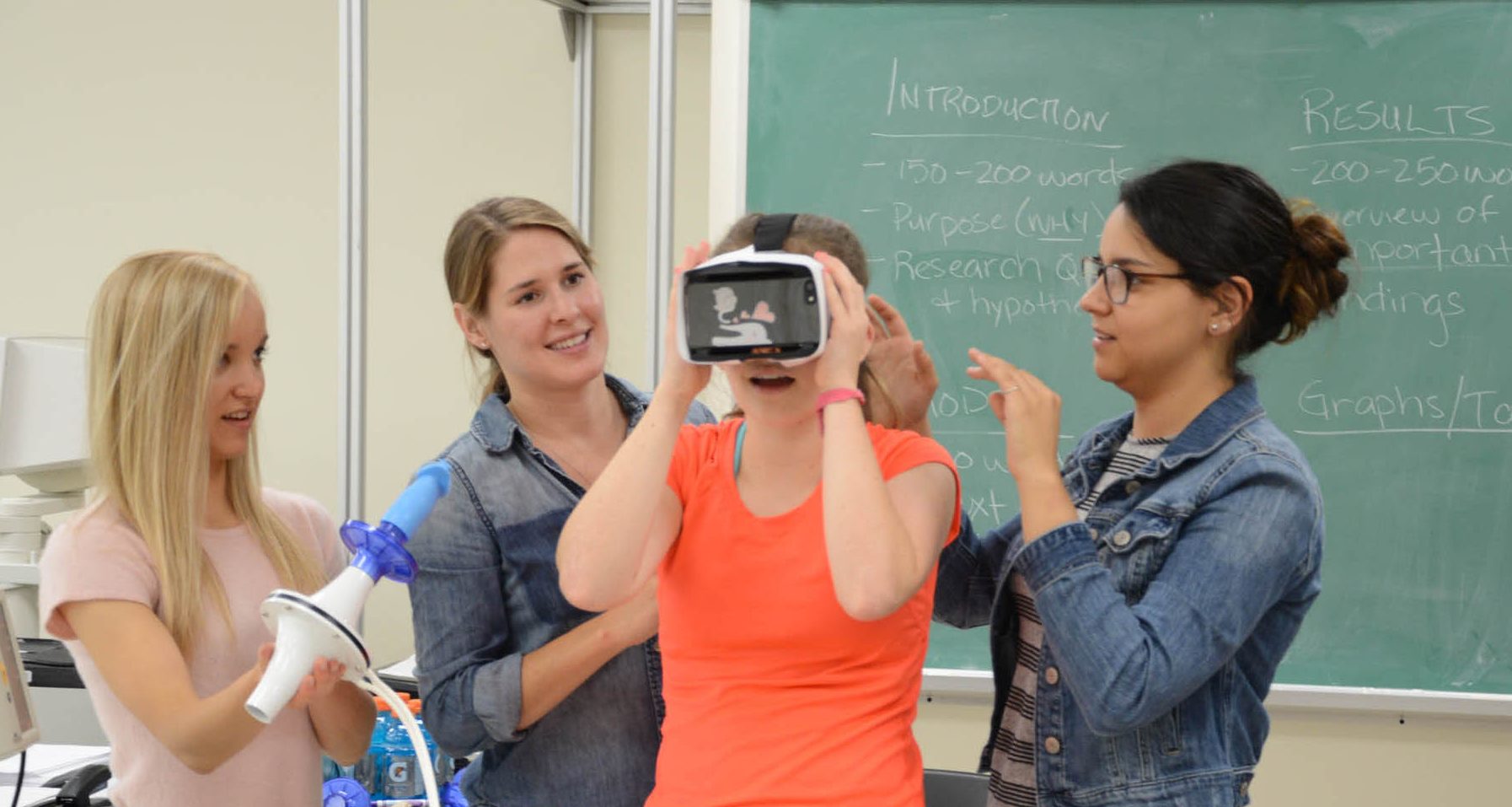This summer, Redeemer launched a one-week intensive research fellowship for high school students interested in the sciences. The fellowship and its participants demonstrate that Christians can be serious contributors to the sciences. After reading through nearly 30 applications for the new fellowship, 16 Grade 11 and Grade 12 students from all over Canada were invited to participate. Mentored by faculty members, students were given access to labs and equipment to work on real-world research questions.
There were two research streams: first, a health science, kinesiology and biology stream and, second, a chemistry and environmental science stream. At the start of August, the streams spent a week hypothesizing, measuring and considering the role that faith plays in their research.
“This experience was an awesome opportunity for me.”
The health science, kinesiology and biology stream researched with Dr. Kristina Durham, focusing on the responses of the body during exercise. Students in the stream, divided into two groups, used the exercise machines and measuring equipment in Redeemer’s kinesiology lab to tackle their respective research questions. One group researched how psychological stimuli — like audio and visual effects — impact exercise. Were there surroundings or distractions that would improve or hinder a person’s exercise performance? The student researchers found that comfortable, enjoyable settings improved athletic ability and performance. The other group hypothesized that a natural source of electrolytes, like watermelon, would improve exercise performance more than a processed source of electrolytes, like Gatorade. They were surprised to find that both sources of electrolytes — natural and processed — had the same effect on performance.
Students in the chemistry and environmental science stream monitored water quality in a local watershed. They hiked to the water’s sources and gathered samples with Dr. Darren Brouwer and Dr. Edward Berkelaar. One group used a newly acquired DNA amplifier to track bacterial sources and prove that some of the problems facing Hamilton’s watersheds are a direct result of untreated sewage from homes entering the watershed. There is evidence, the group concluded, of cross-contamination of sewage in the watershed, contributing to high levels of bacteria that impact environmental health. The second group looked at the water quality of Hamilton’s Cootes Paradise, where work is currently being done to restore the watershed back to its original environmental state. Students took measurements in the field and sourced samples from waterfalls along the escarpment. In the lab, they measured for bacteria and for nutrient levels in the samples. In the end, the students concluded that the Chedoke watershed does not yet meet the set health standards and requires more work to reduce sewage contamination and restore water quality.

Ezekiel, a Grade 11 student in the chemistry stream, says the fellowship was the highlight of his summer. “It provided me,” he reflects, “with a unique opportunity to experience and participate in a research environment, to meet people actively researching in various fields and to find a body of people who shared interests, faith and a love of learning with me.”
The students connected through their research, by staying together on campus for the week and by travelling to downtown Hamilton and Niagara Falls for field trips. A few of Redeemer’s science alumni came to share their hands-on research experience and how it has prepared them for the careers they are now pursuing. Many of the high school students took the opportunity to ask questions and learn more about the steps involved in pursuing careers in STEM fields. “This experience was an awesome opportunity for me,” says Laura, a Grade 11 student in the health science, kinesiology and biology stream, “since I have never studied science in a Christian environment before.” Though she had not initially intended on attending a Christian university, she now considers it a future possibility.
By the end of the week, students had prepared detailed reports, charts and graphs to be shared at a closing reception. Students were excited to present their work and share the week’s experiences with their parents, peers and some of Redeemer’s faculty. Avery, a Grade 12 student, participated in the research fellowship as a first step to learning more about what it means to be a Christian in the medical field. “The way the students, faculty and other researchers interacted with one another created an amazing community centred around our love for Christ and our passion for the sciences,” she says. “I learned so much in such a short amount of time.”